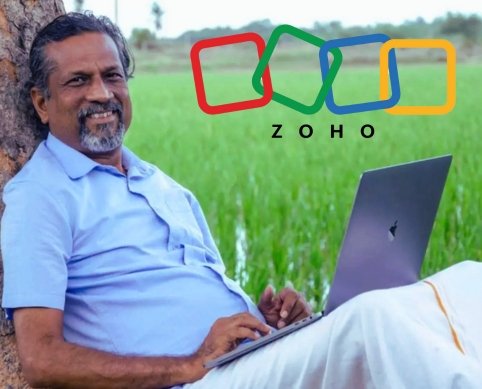Zoho CEO Sridhar Vembu believes that enabling employees to work closer to home could help mitigate burnout. In an interview with PTI, he discussed the challenges of balancing professional and personal life, criticizing corporate culture for prioritizing profits over employee welfare. Vembu is convinced that businesses can thrive without pushing their workers to the brink.
He likened today’s work environment to a “pressure cooker,” cautioning that excessive stress negatively impacts both employees and organizations. He pointed out that factors like loneliness, lengthy commutes, and high-pressure settings contribute to the issue. “Loneliness, lengthy commutes, and demanding work environments are already problems for us. It’s like placing people in a massive pressure cooker, and unfortunately, some individuals crack under the pressure while others are already broken,” Vembu remarked. He emphasized that companies that pursue immediate profits without considering their employees’ well-being are setting themselves up for eventual failure.
Vembu also shared his personal approach to achieving a healthy work-life balance. With over 30 years of experience, he noted that avoiding burnout is essential for maintaining productivity. “I’ve worked for 27 or 28 years, and if it’s feasible, I’d like to work for another 28. However, to achieve that, I cannot allow myself or my employees to experience burnout,” he explained.
A crucial aspect of Vembu’s strategy is the decentralization of operations. He advocates for shifting business activities away from major cities, enabling employees to reside closer to their hometowns. Vembu argues that relocating young professionals to urban areas often leads to feelings of isolation and long, stressful commutes, which can contribute to burnout. “We regularly relocate young employees from rural villages to big cities, where they face isolation as their first obstacle. Then, especially in cities like Bengaluru, they have to endure lengthy journeys that might go up to two hours each way. Burnout is a common occurrence, which is not surprising,” Vembu said. He thinks that extending companies into rural areas and smaller towns can reduce stress and encourage long-term growth.
Vembu also addressed the impact of technology on business. He called for stricter regulations on large tech companies to prevent monopolistic practices and emphasized the need for greater interoperability between platforms, especially regarding messaging services. “Message platforms should not operate in isolation. We need standardized systems to limit monopolies and foster fair competition,” Vembu stated.
